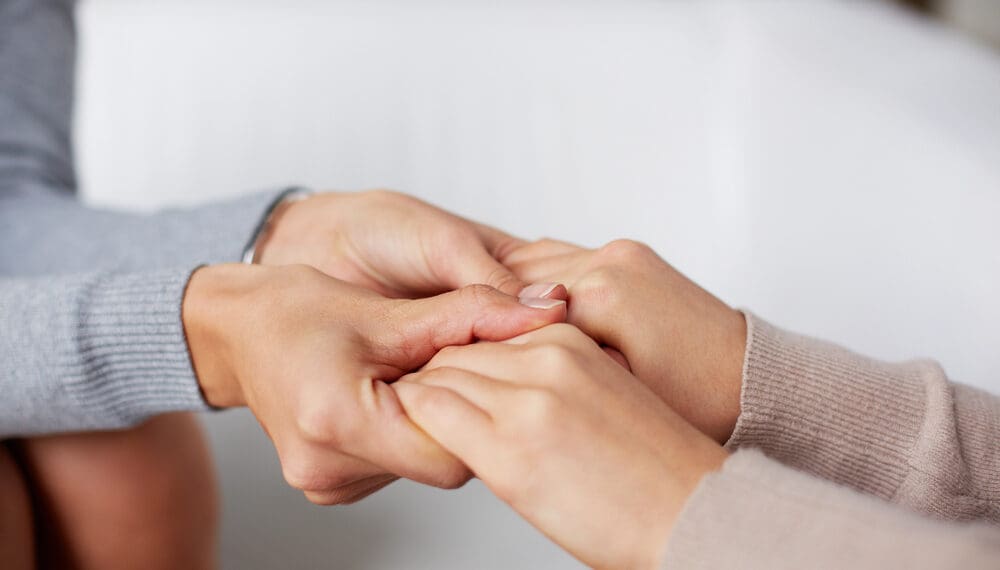Full Disclosure: Clicking on these links could mean a tiny commission for me, at no extra cost to you.
If you’ve been witnessing addiction take over someone you love, it’s important to remember that there is hope and it starts with knowing where to find the right support. While teen opioid addiction treatment isn’t one-size-fits-all and every case of addiction is unique, there are seven key aspects of treatment that make it incredibly effective, especially for teens. Understanding each part will help you find the best route to take for your specific situation.
Key Takeaways
- Treatment plans should be made for each teen’s specific needs
- Medical care and therapy need to work together
- Involving family helps treatment work better
- Ongoing support after treatment is important for long-term recovery
- Treating mental health issues along with addiction is necessary
Advertisement
Start Treatment for Your Teen Today
Teen Counseling provides expert online therapy designed specifically for teens. Connect with a licensed therapist to help them navigate anxiety, stress, and emotional challenges with confidence. Give your teen the support they deserve — don’t wait, help is just a click away.
What Makes a Good Treatment Plan for Teens Battling Addiction?
Treating teen addiction requires a thoughtful, developmentally attuned strategy that meets adolescents where they are, emotionally and psychologically. The most effective treatment plans are grounded in clinical expertise and layered with compassion, flexibility, cultural sensitivity, amongst many other things. They account not only for the addiction itself but also for the co-occurring mental health challenges so many teens quietly endure, including anxiety, trauma and depression.
A good plan creates space for healing. It weaves together evidence-based therapy, structured support systems, family involvement, and holistic tools that empower teens to reconnect with themselves. Because at the heart of recovery is not just sobriety, but restoration of identity, resilience, and hope.
Making It Fit Each Teen
Every teen’s experience with opioid addiction is different. A good treatment plan looks at the teen’s personal history, mental health, family situation, and drug use. For example, they make flexible plans that are adjusted as the teen’s needs change. This personal approach makes sure the treatment works for each individual teen, dealing with their specific problems and using their strengths to help them recover.
Combining Medical Care and Therapy
Medical detox and medication are often important first steps, especially for teens who are physically dependent on opioids. Treatment centers carefully combine these medical treatments with therapy to help with both the physical and mental parts of addiction. This approach makes sure teens get complete care that deals with all aspects of opioid addiction, from managing withdrawal to addressing mental health issues that might have led to drug use.
Main Parts of Effective Teen Opioid Treatment
Effective treatment for teen opioid addiction is often a layered process that addresses the complexities of adolescent development, brain chemistry and lived experience. The best outcomes happen when treatment is comprehensive, integrative and designed to meet the unique needs of each teen. This means going beyond the basics.
Medical Care and Detox
Supervised detox is crucial to safely manage withdrawal symptoms, especially for teens whose bodies might be more sensitive. Te medical team watches over the patients 24/7, gives medicine to help with withdrawal symptoms and keeps checking on the teen’s physical and emotional state. By providing a safe detox, we set the stage for successful ongoing treatment.
Proven Therapy Methods
Teen addiction treatments will use therapy methods like Cognitive Behavioral Therapy (CBT) and Dialectical Behavior Therapy (DBT) to address the emotional and mental factors. This helps the teenager learn coping skills, manage emotions, and change harmful thoughts that might have led to drug use. CBT focuses on changing negative thoughts and behaviours, while DBT teaches mindfulness, emotional control, and better ways to interact with others. Care is also provided for those that are sensitive to past traumas, recognizing that many teens with addiction have experienced difficult events.
Involving the Family
Family support is really important for teen recovery. Many treatment centers also offer family therapy and education to help create a supportive home environment. This involvement strengthens the teen’s support system and helps with long-term recovery. Family therapy improves communication, sets healthy boundaries, and addresses family issues that might have contributed to the teen’s drug use. We also teach parents and siblings about addiction, recovery, and how to support their loved one effectively.
School Support and Life Skills
Continuing education during treatment is important for teens. It helps maintain a sense of normalcy and prepares them for future success. Staff provide tutoring, study time, and work with the teen’s school to keep them on track. They also teach important life skills like communication, problem-solving, and stress management. These skills help teens handle everyday challenges without turning to drugs.
Fast, Affordable Therapy and Medication
Medication and therapy work better together — and Hims/Hers make getting support simple. Connect with licensed providers online, receive personalized treatment plans, and access medication — all from the comfort of home. No long waits, no stress — just expert care made easy.
Peer Support and Group Therapy
Group therapy gives teens a safe place to share experiences and build trust. These group interactions help teens learn from each other, practice new skills, and feel like they belong. We have different types of group therapy to suit different learning styles and needs. The friendships formed during treatment often become valuable support for ongoing recovery.
Checking Progress and Changing the Plan
Staff regularly check how each teen is doing and adjust their treatment plan as needed. This includes check-ins with therapists, medical evaluations and feedback from the teen and their family. By keeping a close eye on progress, we can quickly spot any problems and make changes to ensure the treatment stays effective.
Preventing Relapse
We work with teens to identify triggers and build resilience to prevent relapse. This includes teaching them to recognize risky situations, cope with cravings and create a detailed plan to stay sober. We also focus on building a strong support network and teaching stress management techniques to help teens stay balanced and avoid returning to drug use.
Ongoing Support After Treatment
Outpatient services and sober living environments provide continued support as teens transition back to daily life. These options help reinforce the skills learned during intensive treatment. We also offer alumni programs, continued family therapy, and access to resources to support long-term sobriety and personal growth.
Other Helpful Treatments and Therapies for Teen Opioid Addiction
While detox, behavioural therapy, and medication-assisted treatment form the clinical backbone of most teen opioid recovery plans, a growing body of research and real-world experience supports the integration of additional therapeutic modalities that speak to the emotional, relational, and spiritual needs of teens.
1. Art and Expressive Therapies
Many teens struggle to articulate their pain through words. Creative therapies like art, music, and drama offer alternative, powerful outlets for expression. These therapies help teens process trauma, explore identity, and build emotional regulation skills in a non-threatening, engaging environment.
2. Equine and Animal-Assisted Therapy
Working with animals, especially horses, has been shown to reduce anxiety, improve self-esteem, and strengthen emotional insight in adolescents. These therapies foster trust, responsibility, and non-verbal connection, especially valuable for teens who may feel misunderstood or emotionally guarded.
3. Wilderness and Adventure Therapy
Nature-based programs combine outdoor challenges with therapeutic support, allowing teens to disconnect from harmful environments and reconnect with themselves. These experiences often promote resilience, teamwork, and personal accountability while reducing depressive and anxious symptoms.
4. Mindfulness and Meditation
Mindfulness-based interventions teach teens how to stay grounded in the present moment, a vital skill when navigating cravings, anxiety, or trauma responses. Meditation, breathing exercises, and body scans can be powerful tools for emotional regulation and relapse prevention.
6. Integrative Wellness Tools
Supportive products like fidget rings, anxiety jewelry, worry stones, and crystals for healing may not be clinical interventions but they offer tactile, comforting anchors that can help teens self-soothe during moments of stress or overwhelm. These tools, easily available in our Anxiety Gone shop, are especially effective when paired with therapeutic work.
Shop Our Wellness Collection
Looking to bring more calm and mindfulness into your daily life? The Anxiety Gone Shop is your go-to destination for handpicked mental wellness and self-care tools that soothe, support, and empower.
From anxiety-easing fidget rings to soulful self-care products, you’ll find everything you need to relax and restore. Take the first step toward a calmer, more centered you today.
Starting Teen Opiod Addiction Treatment
A truly effective treatment plan sees the teen and the struggle behind the addiction, and starts there. By weaving together evidence-based therapies, holistic practices, family support and mental health products for coping with anxiety, the journey towards recovery doesn’t have to be as scary.
Additional Resources
At Anxiety Gone, we believe in healing together. We’ve partnered with trusted wellness organizations to bring you the most effective tools, insights, and support. Some links may earn us a commission — always at no extra cost to you.
Join The Club
Connect with our private self-care community for daily support, exclusive tips, and inspiration. Join us today
Talk Therapy
Get matched with licensed therapists online through BetterHelp and begin your healing today. Start now
Hims/Hers
Receive personalized, affordable mental health care + medication from home — no insurance required. Learn more
Mental Health, Right to your Inbox
Subscribe to our newsletter for a place to rest your mental health and find ways to support your journey. Sign up
Emotional Freedom Technique
Tap your way to calm with scientifically backed stress relief. Our readers receive a 14-day free trial! Try EFT now
Mindfulness App
Access 2,000+ guided practices to support your mental health wherever you are + exclusive discount when you upgrade Try it
Online Breathwork
Experience calm and reset your nervous system with guided sessions and receive your first month free . Get started
Find a Helpline
If you need immediate support, visit our directory to find help near you. See helplines










Discussion about this post